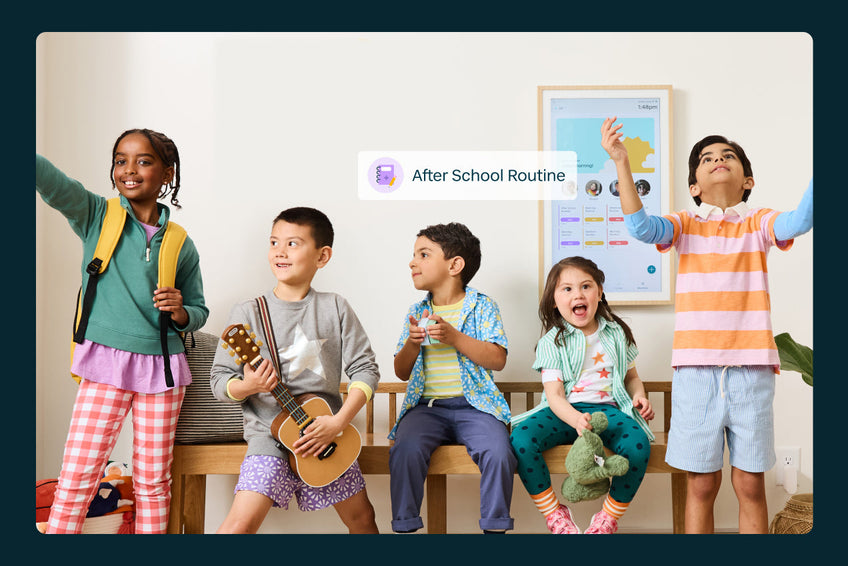Parenting advice can be downright spooky sometimes. Between social media trends, well-meaning friends, and endless online “experts,” it’s easy to get lost in myths that often scare more than they help.
This Halloween season, we’re shining a light on some of the scariest parenting myths out there — and asking real child development experts to help us separate fact from fiction. Because the truth? Good parenting isn’t about perfection — it’s about understanding, connection, and growing together.
Myth: Common misconceptions from parents are that children need SO MUCH quality time with their primary caregivers/parents. Parents often feel overwhelmed by the amount of time and attention expected from them.
Fact: In reality, to expand and explore this world, children need their parents as a safe and warm space but they also need more freedom and agency for independent play, risk taking and exploration, and responsibility assigned to them to grow into capable humans.
— Saachi Dhingra, Co-Founder & CEO of Sachi, a platform that helps educators and families collaborate
Myth: "My child is just being lazy.”
Fact: "My child is overwhelmed, over scheduled, over-pressured, and mentally checked out, is fearful of failure and being perceived as a disappointment, or is struggling with executive functioning (e.g., not knowing how to get organized and started on a task).
—Rachael Yates, Ph.D., child and adolescent neuropsychologist
Myth: Toddlers are terrible and their behavior is bad.
Fact: In reality, toddlerhood is a challenging yet critical developmental period that set the foundation for the rest of a child's life and all behavior is communication - not good or bad. Those are a judgement we place on behavior. Behavior communicates the feelings, emotions and needs below the surface.
—Devon Kuntzman, PCC, certified toddler parenting coach
Myth: Social media has swung in a different direction lately- it used to be that parents expect early parenthood to be full of delicious smelling babies, instant bonding, and the ability to put yourself together in the morning. Lately though, there is a new "norm" which is that parenting is full of challenges, that life in early parenthood is hard, and that we should celebrate the "realness"- mentally and physically that comes with being a new parent.
Fact: This is certainly true- but I think the misconception here is that we should EXPECT it to be mostly awful. Parenthood is wonderful- challenging, identity shifting, patience testing, but also beautiful and joyful. It's all the things.”
— Emily Greenberg, President & Co-Founder of Joy, a modern parenting club
Myth: That there is one "right" way to do things.
Fact: People are complex, families are complex and there is no one way to do something. People will often think that knowing information, makes you a better parent or means you will "do the right thing". The truth is, there is a big difference between knowing and doing. Parenting is the ultimate equalizer. We all start at the same place, no experience and a lot to learn along the way!
—Kelly Oriard, Co-Founder & Chief Therapeutic Officer of Slumberkins
Myth: That when you're a parent you always have to be on the back burner.
Fact: When you’re a parent if you constantly remain on the back burner in the name of self-sacrificing for those you love the most, eventually you will feel so depleted, burned out and overwhelmed you will start to resent those you love the most. When it comes to parenthood we don’t have to be all or nothing. We don’t have to always come first nor do we always have to remain on the back burner, instead we have to regularly take a turn. It's critical we do this in the name of our relationships, in order to be parents we want to be, because showing up takes a ton of heart, energy, and emotional effort.
—Dr. Morgan Cutlip, mental load and emotional labor expert
Myth: As a former special education teacher, one of the most common misconceptions I encountered was the idea that emotional regulation should be instinctive or immediate—especially for neurodivergent children. Many parents believed that if their child couldn’t calm down or manage their emotions quickly, something was “wrong” or that they were failing as caregivers.
Fact: But the truth is, emotional skills are learned just like reading or math—and some children need more support, practice, and compassion to build those skills. At Slumberkins, we honor each child’s unique emotional development journey and help parents see that connection and co-regulation are the foundation, not the finish line.
—Callie Christensen, Co-Founder/Chief Brand Officer Slumberkins
Myth: That meltdowns are something to always be "fixed".
Fact: Meltdowns are signals, not failures — they show what kids need to feel safe and understood.
— Lauren Fouche, executive functioning skills expert
Not all scary stories come from haunted houses — some come from the myths we tell ourselves about parenting.
By facing these fears and learning the truth behind them, we can replace guilt and pressure with confidence and compassion. So this Halloween, let’s put those outdated parenting myths to rest, for good.




